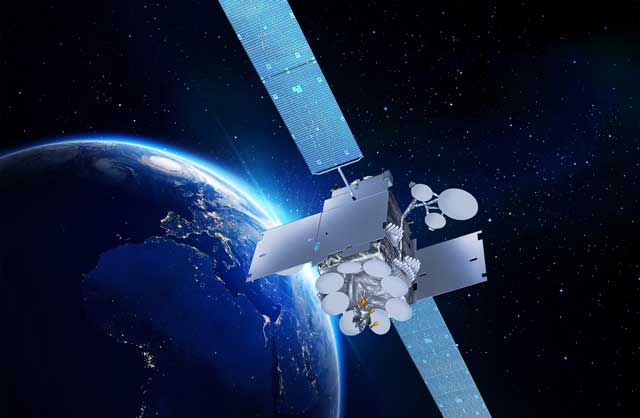
An Internet of Things (IoT) solution for connecting machines and sensors in even the most remote areas of the world is set to expand following a partnership agreement between start up firm Skylo and satellite communications specialist Inmarsat.
It is claimed that the partnership will enable “the world’s first commercial narrow-band IoT over satellite solution”, with Inmarsat providing the satellite capacity to deliver the service through its ‘L-band’ network.
Skylo says that its IoT platform – which is available now in India – is easy to use and capable of providing ‘always on’ connectivity for machines, sensors and devices. It adds that satellite IoT connectivity offers greater reliability and cost effectiveness than other IoT solutions, particularly where there is inconsistent or no cellular coverage.
Even remotely located application users are able to receive real time, actionable insights and alerts which can be used to help improve efficiencies, increase profits or improve sustainability, it says.
Continuous, real time data transmission from sensors is provided through the Skylo Hub, a small terminal ‘hotspot’ that reads sensors and transmits data to the Skylo Satellite Network, of which Inmarsat’s L-band network will form the backbone. User interface is through the Skylo Data Platform, available on mobile or desktop.
Skylo is currently active in sectors including agriculture, logistics, fishing and railway, and is due to announce expansion plans later this year.
“Skylo makes simple, reliable IoT connectivity available to everyone at disruptively affordable rates,” commented the firm’s CEO and co-founder Parth Trivedi. “Our global IoT connectivity fabric makes way for thousands of life changing applications – from managing vaccine efficacy during delivery, to advancing precision farming, to providing early warnings in the event of natural disasters. We look forward to expanding globally and making our platform available to small and large enterprises, companies deploying new sensors, systems integrators, distributors, governments and OEMs.”
Inmarsat chief executive officer Rajeev Suri said: “The most effective IoT solutions require a truly resilient and flexible network that can scale as demand grows. Inmarsat’s industry leading L-band network provides a unique capability for enabling the billions of connected IoT devices in India and across the world that are being deployed at an extraordinary speed. We are delighted to work with Skylo to provide the IoT fabric that matches their ambition.”
Development of a separate system using satellite technology to provide IoT connectivity in remote parts of the world is also underway in Scotland where start up R3-IoT is working on a project with innovation centre Censis.
Last month it was announced that the firm and its partners had received funding to develop a software system that automatically captures large volumes of continuous sensor data across fish firm sites. This platform will be developed in parallel with R3-IoT’s satellite communications solution. The idea is that the data is transferred to the cloud via satellite to provide access to real time data from isolated operations.
Further sectors identified in Scotland which could benefit from satellite IoT connectivity include environmental monitoring, remote healthcare, and renewable energy. The technology could have further worldwide applications in mining, oil and gas, logistics, industry 4.0 and a variety of other remote industries.

